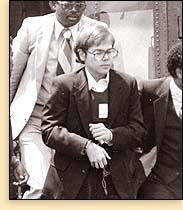
[For the audio version of this homily, click here: Fifteenth Sunday 2004]
“And who is my neighbor?”
This was the lawyer’s question to Jesus in today’s Gospel passage from Luke 10. But this also needs to be our question! Each of us needs to pose it and answer it in our own heart—honestly!—and then we need to compare our personal responses to the one Jesus gives in this text.
Now to properly understand Jesus’ answer, we need to “modernize” the main character of the story, the Samaritan. We’re told in the parable that a man traveling from Jerusalem to Jericho was attacked and beaten by robbers, and then left to die on the side of the road. This man—this innocent victim—was clearly Jewish, as were the two people who went by but refused to help (the priest and the Levite). The only one who stopped to lend a hand is identified as a “Samaritan.” And he didn’t just put a Band Aid on the suffering Jew and then continue on his merry way; he treated the beaten man like a brother! He cleaned his wounds and wrapped them in fresh bandages, and he provided for the man’s continued care.
Now Scripture doesn’t tell us what the lawyer’s face looked like when he heard all this, but I’m quite certain he wasn’t smiling, because at the time most Jews and Samaritans hated each other! In fact, I don’t think it would be a stretch to say that Jews and Samaritans of the first century normally had the same attitude toward one another that radical Islamic Fundamentalists currently have toward citizens of the United States!
So, if you want to experience the force of Jesus’ message in the same way that the Jewish lawyer did who first heard the story, imagine two Americans neglecting a fellow citizen of theirs who had just been beaten and robbed, and a radical Islamic Fundamentalist coming to his aid and treating him like a member of his own family.
The point Jesus was making to the Jewish lawyer was simple: “Like it or not, Samaritans are people, too! And all people have an inherent dignity, because they’ve been created in the image and likeness of God. In that sense, everyone is your neighbor.”
We currently live in a world where many people think of their neighbor as “everyone but . . .”—everyone but the unborn baby in the womb; everyone but the embryo with those stem cells I want; everyone but those people who have a skin color different than mine; everyone but the person who hurt me and my family; everyone but the man in the persistent vegetative state; everyone but [fill in the blank].
Do you know what always impressed me about Ronald Reagan? It was that he considered John Hinckley to be his neighbor (in the sense that I’m using the term “neighbor” in this homily)! John Hinckley, of course, was the guy who tried to kill him back in 1981! And yet, Reagan forgave Hinckley—publicly; he called him a “misguided young man,” and refused to allow hatred and bitterness to fill his heart. He didn’t say that Hinckley should go free—nor should he have said that!—but he never forgot that Hinckley was a human being with an immortal soul.
In that he was just like our Holy Father, Pope John Paul II, who forgave the man, Ali Acga, who shot him in St. Peter’s Square in May of that very same year, 1981.
And who is my neighbor?
Jesus, in effect, said, “Everyone”; he did not say, “Everyone, but . . . “.
What do you say?
